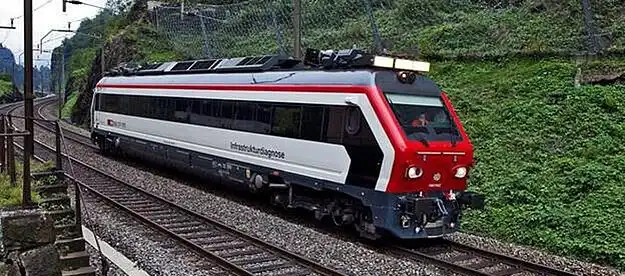As part of a contract inked today (July 24), Network Rail and Swiss railway company SBB will collaborate on a number of technologies, including artificial intelligence (AI).
By signing the Memorandum of Understanding (MoU), Network Rail takes the first step towards fostering relationships with foreign railway operators and exchanging information and best practices.
It is a component of the recently established International Research & Development Partnership Programme (IRDPP) of Network Rail, which aims to supply and develop technologies to enhance safety and create a network suitable for customers using it for both freight and passenger transportation. The employment of artificial intelligence (AI) technology in light-rail remote condition monitoring and inspections of steel bridges and tracks, particularly switches and crossovers, will be the initial focus.
“This partnership marks a major step for us as an organization, partnering with the international rail community to share experiences in operating a railway,” said Robert Ampomah, Chief Technology Officer of Network Rail. We can build new technology that will help modernize the railway by taking a close look at what works and what doesn’t.
Although information sharing with national and international rail partners has a long history, signing the MoU with SBB today reaffirms our commitment to collaborating more closely.
SBB’s Head of Technology, Roland Mosner, stated: “Continued forward thinking has been vital to us as an organization in terms of sharing best practices and advancements in applied research and development.
“By working together to improve our operational excellence, we want to provide the greatest results for our customers and passengers. One significant step in maintaining the positive momentum is the signing of the MoU with Network Rail (NR). We are excited about the chance to collaborate with Network Rail and look forward to the benefits it will offer.
The responsibility for resources, testing capabilities, and best practices will be shared by both parties in projects established as part of the IRDPP, initially in the form of workshops that can be attended in person or online.
